The Master of Conservation Leadership is a career-focused program for conservation professionals who are ready to take the next step into conservation leadership. Our students come to the MCL program from a wide variety of academic and professional backgrounds.
Meet the 2025-2027 Cohort
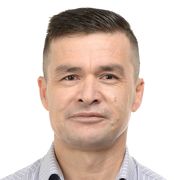
Mohammad Ibrahim Abrar
I was born and raised in a remote areas of central Afghanistan. After completing my school in my hometown, Bamyan province, I attended and obtained my Bachelor’s Degree in Agriculture and Plant Protection from the University at Kabul-Afghanistan in 2006. After graduation from University I worked for 15 years with International Non-Governmental Organizations (INGOs) in community development including nine years as a Field Projects Manager with Wildlife Conservation Society (WCS). I led and facilitated protected area justification, declaration and management in central and northwestern part of the country. I have coordinated and implemented conservation activities with collaboration of local governments, indigenous people in three national parks of Bamyan and Badakhshan provinces. After political change in Afghanistan I moved out with my family and settled in Windsor, Ontario, Canada.
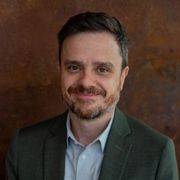
Garner Beckett
Garner Beckett is a dedicated nonprofit leader with more than 20 years of senior management and fundraising experience in Canada’s charitable sector. He holds a degree in not-for-profit management from the University of Waterloo and has advanced both public and private sector engagement in causes spanning arts and culture, education, vulnerable youth, and environmental conservation. Before joining Conservation Halton as Executive Director of the Foundation, Garner served as National Director of Philanthropy at Big Brothers Big Sisters of Canada, where he led national fundraising efforts and played a key role in establishing the Big Brothers Big Sisters of Canada Foundation, serving as a founding trustee and Executive Director. Passionate about building strong communities and helping people connect to nature, Garner is also a lifelong appreciator of arts and culture. In his free time, he enjoys playing guitar, exploring creative projects, and spending time outdoors with his family.
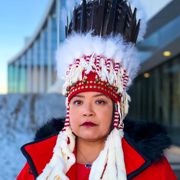
Diandra Bruised Head
Oki, Iitoomsaokaa'sii Diandra is a Kainakii who completed her Renewable Resources Management Diploma from Lethbridge College (now Polytechnic), and her B.Sc. Environmental Sciences Degree from the University of Lethbridge. She has been employed as a forestry technician, a grasslands cascade research technician, climate change coordinator, and Iinnii/buffalo coordinator. She served on her home community Kainai Blood Tribe Chief and Council from 2020-2024. She currently is Manager of Indigenous Learning and Impact at the University of Lethbridge. Diandra plans to explore landscape scale Iinnii/bison corridors in Traditional Blackfoot Territory, initially in Southwest Alberta, during her journey in Conservation Leadership, including factoring in social and economic concerns that Traditional Blackfoot Knowledge and contemporary conservation innovation can help answer.
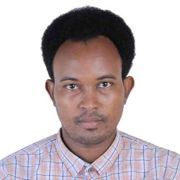
Abdirisak Ibrahim
I am a conservation practitioner from Somalia with over six years of experience in environmental protection and sustainable resource management. My focus is on conserving frankincense forests and the unique ecosystems of the Golis Mountain ranges in northeastern Somalia. In 2020, I co-founded the Species Saviour Initiative (SSI), a conservation NGO dedicated to protecting threatened plant and animal species in Somalia. Supported by the Airbus Foundation and Connected Conservation Foundation (CCF), I currently lead a project using satellite imagery and machine learning to map and monitor the health of endangered frankincense trees, providing critical data on deforestation trends from 2014 to 2024 to guide restoration efforts and inform national policies. I have authored peer-reviewed research on sustainable frankincense harvesting and the role of Traditional Ecological Knowledge (TEK) in resource governance. Academically, I hold a Diploma in Environmental Management from Makerere University, a BA in Community Development from the University of Bosaso, and a Postgraduate Certificate in Peace and Conflict Studies from Coventry University. Through the MCL program, I aim to enhance my leadership skills and advance community-led conservation solutions.
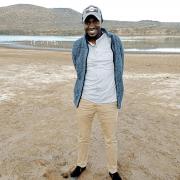
Samson Luari
I am from the Indigenous Ogiek community of the Mau Forest in Kenya and I work as a Project Officer at Ogiek Peoples’ Development Program (OPDP). I coordinate the Ogiek Cultural Center which is one of hub for preserving Ogiek culture and traditions. Am a member of the Land Body Ecologies (LBE) team in the research on Climate Change and Mental health. I am also a member of Indigenous Youth Network in Kenya and Global Indigenous Youth Caucus. Samson is also an Agroecology Champion and researcher on Indigenous Food Systems leading agroecology among hunter gatherer communities in Kenya.

Esther Hope Pridmore
Esther Hope is an environmental impact and conservation student dedicated to protecting native wildlife in urban areas. With a bachelor’s degree in Environmental Governance and a background in pollinator health and garden maintenance, she has a passion for building community and creating green spaces to improve connections between people and the natural ecosystems they reside in. With research in habitat fragmentation and the effects of infrastructure on native species and ecosystem health, Esther Hope has joined the MCL with the goal of increasing her knowledge of conservation methods and their implementation. Through the approach of combining Indigenous knowledge and western knowledge, she aspires to bring a deeper appreciation and understanding of ecosystems to the public and to the implementation of urban design and community gardens.
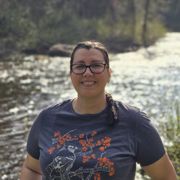
Chantal Tetreault
Chantal Otter Tetreault is from the Cree community of Waswanipi in Northern Quebec (Eeyou Istchee) and holds a bachelor’s degree in Geography from Concordia University. She has worked with the Department of Environment and Remedial Works of the Cree Nation Government for over two decades in the capacity of GIS technician and Environmental Analyst. More recently since 2012, in her current role as Protected Areas Manager, she led the Cree Nation land stewardship and conservation initiative in Eeyou Istchee, by identifying and establishing a network of protected areas of high ecological and cultural value across Eeyou Istchee. Chantal is also a Cree-Canada Steering committee member with Parks Canada to establish an Indigenous Protected Area and National Marine Conservation Area in Southeast James Bay (Wiinipaakw). Shes had the privileged to act as Interim Chair and member for over 10 years for the Eeyou Marine Region Planning Commission to develop planning policies, priorities and objectives regarding the conservation, development, management and use of land in the Eeyou Marine Region. She is also a member of the Indigenous Circle of Experts (ICE), a federal advisory group on Indigenous Protected and Conserved Areas. She looks forward to gaining knowledge through the MCL program to deepen her understanding of Indigenous-led conservation and to better serve her Nation.
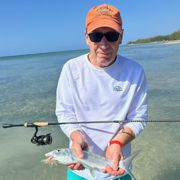
David Tuley
David is a new Canadian, having immigrating to this country in 2002. He has two degrees in geography (Mary Washington, Kansas State), in which he studied urban sprawl, rural decline, and cultural resource management. Throughout his university experience, David was a landscaper, designer and eventually opened a garden centre. While finishing graduate school he started a career as the Director of Community & Economic Development for Pottawatomie County, Kansas. In Canada, David has spent nearly twenty years in municipal service involved in community development. A few notable projects he inspired in Downtown Oshawa include a co-working centre, downtown university campus, and hotel & conference centre. Along the way, he added citizen journalism as a skill as he designed, wrote, and edited 79 editions of a monthly print journal that was mailed to all residents in Whitchurch-Stouffville, which supported agriculture, sustainable tourism, outdoor recreation, and small businesses. In 2024, David became disenchanted with aspects of his career and paused it. He wishes to focus rather on the intersection between humans and nature. This pursuit has led to entering the MCL program and volunteering with the Oak Ridges Moraine Land Trust. David and family reside in Richmond Hill and Collingwood.
Meet the 2024-2026 Cohort

Juma Mohamed
Juma is a dedicated Marine Conservation and Livelihoods professional with a strong interest in integrating finance into conservation. Holding a master's in finance and Investment from Coventry University, UK, he has extensive experience in corporate banking and international development. Juma has successfully managed private sector development programs focused on regional economic integration and SMEs. As a member of the African Marine Conservation Leadership Network, he represents the first marine cohort of the African Marine Leadership Program. At Mwambao, Juma has advanced from Program Support to Program Manager, Head of Programs, and now serves as the Head of Operations, overseeing organizational operations and compliance. He is passionate about empowering indigenous and coastal communities. Juma joins MCL to enhance his knowledge in conservation and leadership.

Fanuel Nleya
"Effective conservation requires diversified leadership and highly skilled, capacitated practitioners. Key admiration should be their vital role in the field is to confronting and overcoming conservation challenges, offering pragmatic solutions to the wicked and complex issues that threaten our natural world."
Originally from Zimbabwe, Fanuel Nleya is a dedicated and dynamic conservationist with over 20 years of experience in nature conservation and wildlife management. His journey began in 2004 when he joined the Zimbabwe Parks and Wildlife Management Authority, in Hwange National Park (Sinamatella Intensive Protection Zone). Diversifying his experience and rising through the ranks of the Zimbabwe Parks and Wildlife Management Authority, Fanuel joined the Scientific Services of the Authority as an Extension Ranger moving from Sinamatella IPZ to Victoria Falls (World Heritage Site)/ Zambezi National Park and later on to Charara Safari Area as Senior Extension and Interpretation Officer in Kariba which was his area of last deployment in 2016.
During this period of time, he enjoyed the benefit of excellent training, gained a great deal of experience and became adequately qualified and experienced to handle the essential tasks and duties required to manage the important wildlife resources. In these positions he worked closely with ecologists, CAMPFIRE, KAZA TFCA staff, NGOs like ALERT, Victoria Falls Wildlife Trust, Painted Dog Research Trust (PDRT), Environment Africa etc doing extension and community work, conducting research and management activities that enriched his practical skills and scientific knowledge. Throughout he also amassed extensive experience in research, rhino monitoring, law enforcement and active anti-poaching strategies, as well as addressing the issues of CBNRM and HWC. He has also participated in numerous ZPWMA projects, gaining extensive knowledge and practical skills in areas such as conducting EIAs, large mammal population surveys, vegetation mapping, fire management, and wildlife habitat monitoring and World Heritage Site Management. He has also been involved in various research initiatives, including studies on human-wildlife conflict, alien vegetation eradication, and large predator occupancy surveys in Victoria Falls/Zambezi/Matetsi Safari Area regions and KAZA landscape. In addition to this fieldwork, Fanuel contributed significantly to ZPWMA community liaison and public relations efforts, promoting conservation awareness and education through participation in provincial and national exhibition events like Zimbabwe International Trade Fair. He has extensive experience addressing human-wildlife conflicts in both rural and urban areas, collaborating with various organizations. Additionally, he is trained in various HWC management tools and techniques, including the FAO-developed HWC Toolkit, chilli guns, and chilli bombs.
Starting off as a volunteer at SAWC in 2017 he has taught the college Bridging course programme that empowers young South Africans at entry level into conservation, he has been the lead facilitator/trainer/lecturer for the Higher Certificate in Nature Conservation: Leadership and implementation targeting already employed conservation practitioners. He continues to contribute to the development of Transfrontier Conservation Area (TFCA) Managers in the SADC region through lecturing the Advanced Certificate Nature Conservation: Transfrontier Conservation Management (NQF Level 6) program, Higher Certificate Nature Conservation: Leadership ad implementation (NQF 5) and the National Certificate Natural Resource Management: Terrestrial (NQF 5) program. He has since assumed a role as Programmes Manager in the Skills Development for Conservation Department to ensure effective and efficient the management of these programmes at the college.
Fanuel's extensive experience and dedication make him a valuable asset to the field of conservation, where he continues to lead efforts in protected area management, conservation education, and the development of practical solutions for complex environmental challenges. Throughout his career, Fanuel has received several awards and professional memberships, including the Earth Watch Institute Shulman Award 2016 and professional membership in the Game Ranger Association of Africa. His interests include conservation leadership, foresight and future thinkings, protected area management, conservation law enforcement, environmental law, terrestrial ecology, human-wildlife conflict management (HWC), community-based natural resources management (CBNRM), Transfrontier Conservation Areas (TFCAs), and the application of technologies for sustainable natural resource management.

Mike Kent
Mike is an arborist with the City of Sarnia in Ontario, Canada, an international Trip Leader for Quest Nature Tours, a small business owner, and dedicated volunteer for many local environmental groups. Mike is a naturalist at heart with a love for biodiversity, ecology, and nature interpretation. He has a keen and abiding interest in all life forms with a particular fondness for insects, fungi and other under-appreciated groups. Mike aspires to reconnect people in urban environments with the local natural world. With more and more of the world’s population living in urban areas, an interconnected fabric of greenspaces close to home is essential to reduce habitat and social fragmentation, while also encouraging ecocultural conversations to bridge the growing nature-culture divide and foster intersectional conservation ethics.
Meet the 2023-2025 Cohort

Kelsey Bowles
Kelsey (she/her) started her career with Parks Canada on the external relations team at Rouge National Urban Park. She is now the Internet Content New Media Officer for Parks Canada’s Southwestern Ontario Field Unit.
With her focus in communications, Kelsey strives to spread awareness of environmental issues and conservation initiatives to inspire members of the public to get involved. She believes strongly that connection to nature can lead people to want to conserve it, and it is this philosophy that guides her work with Parks Canada. She is passionate about public activism and hopes to advocate for intersectional, community-based conservation throughout her career. She is looking forward to learning more about innovative conservation practices; Indigenous-led conservation; and public communications and partnering through the MCL program.
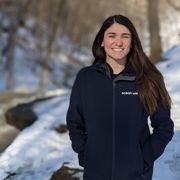
Megan Lalli
Megan merges her passions for environmentalism and community-building to revitalize natural spaces for all living beings. With charity and non-profit experience in community-based conservation, wildlife rehabilitation, and ecological restoration, she now connects communities and habitats across Niagara as a Restoration Technician with the Niagara Peninsula Conservation Authority (NPCA).
Megan stays involved in her community as a board member with the Niagara Chapter of Trout Unlimited Canada where she fosters stewardship and restores the Twelve Mile Creek watershed. She also helps emerging environmental leaders find opportunities for growth and professional development through the Young Conservation Professional Leadership Program (YCP). Megan is excited to join the MCL program and learn how to incorporate Two-Eyed Seeing into the practice of restoration. She hopes to be a bridge across communities to restore land and water, protect biodiversity, and facilitate connections for a better world.
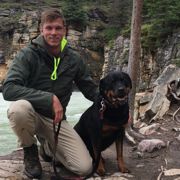
Gerben Deinum
Gerben is a Dutch immigrant to Canada with an extensive background in conservation policy and legislation. He is working alongside First Nations through the Assembly of First Nations as a lead on domestic conservation implementation, with a scope covering Canada's Pathway to Target 1, actioning commitments to international conservation targets, and IPCA's and OECM's.
His work includes membership in the National Steering Committee, Indigenous Stewardship Framework, and the Conservation through Reconciliation Partnership
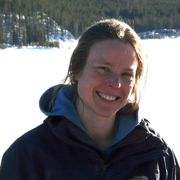
Joanna Jack
Joanna (she/her) was born in the Yukon to a family of English and Scottish settler ancestry and has managed projects for Plenty Canada since 2019. After a decade of working in protected areas across Ontario and the Yukon, she completed her MSc on road ecology, then worked on campaigns to protect the Peel watershed and the Porcupine Caribou with the Yukon chapter of the Canadian Parks and Wilderness Society, before joining Plenty.
Joanna’s experiences working in collaboration with First Nations peoples has inspired and deepened her interest in partnering together for the successful application of Two-Eyed Seeing in conservation.
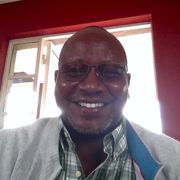
Joel Ole Nyika
Joel Ole Nyika ( His/Him ) is from the First Nation / indigenous Masai tribe in southern Kenya. He was born and brought up in a pastoralist nomadic community near a national park.
After his undergraduate education in South Africa and a year long internship in the world famous Kruger National Park, Joel returned to Kenya to work at the national level initially as a member of the ministerial task force on the conservation of environment and protection of the country water tours, and later at the country wildlife authority (Kenya wildlife service) in terrestrial and marine protected areas.
After the promulgation of the new constitution in Kenya in 2010, Joel joint the devolved County Government of Kajiado. First as a deputy director in-charge of environment compliance and enforcement and later as the head of the climate change unit. He was thereafter promoted in 2018 to his current position of the county director of culture, tourism and wildlife.
He joined the MCL programme because he was intrigued and fascinated by the content and uniqueness of the course, especially concepts like ethical space, two-eyed seeing, and/or indigenous-led conservation paradigms.
Meet the 2021-2023 Cohort
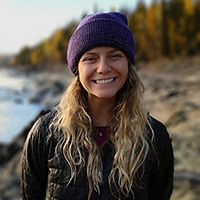
Raegan Mallinson
Raegan has worked as a program manager for Living Lakes Canada since 2017. Prior to this, she was the communications director for the Columbia Basin Watershed Network and worked as a watershed stewardship coordinator and environmental educator for Living Lakes Canada and Wildsight.
Raegan joined MCL because she wants to use her experience in community-based monitoring to support collaborative decision-making and data transparency. Raegan is interested in bridging knowledge systems to co-create environmental monitoring programs that support Indigenous Protected and Conserved Areas (IPCAs).
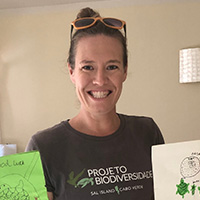
Shannon Sutherland
Shannon is the co-founder of Projeto Biodiversidade, a conservation NGO located in Cabo Verde. She is interested in exploring the environmental, economic, and socio-political barriers to achieving conservation actions on a national scale.
Shannon has taken on a variety of roles and responsibilities throughout her career, including connecting underserved youth to local wildlife through environmental education programming with Living Classrooms, a nonprofit organization based in Washington, DC, and leading national awareness campaigns against illegal wildlife consumption in Cabo Verde.

Kate Tucker
Kate's employment experiences have included wildlife monitoring with the Alberta Biodiversity Monitoring Institute, elementary education, and developing, teaching, and evaluating environmental education programs for Calgary-based K-12 students in both classroom and field settings.
Kate's current role as the Bow region natural area manager for the Nature Conservancy of Canada has her working with landowners, leaseholders, the public, and volunteers managing conservation and stewardship activities on both NCC-owned properties and private lands with conservation easement agreements..
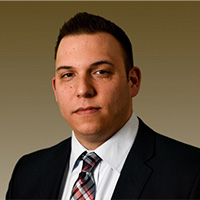
Curtis Scurr
Curtis is from Mohawks of the Bay of Quinte First Nation and the current director of the environment for the Assembly of First Nations. He has over 10 years of experience working in both the public and private sector roles alongside First Nations on environmental policy, legislation, and research related to climate change, environmental and community health, conservation, and natural resource management.
Curtis is also a member of the Indigenous Circle of Experts for the Pathway to Canada Target 1 initiative, co-chair of the Indigenous Protected and Conserved Areas Working Group, and a newly appointed member of the Pathway National Steering Committee.
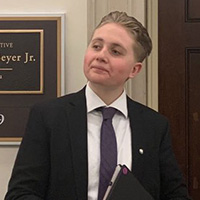
Ryan Zlatanova
Ryan (he/him) is an intersectional environmentalist and activist with experience in public mobilization, communications, environmental education, and zoo animal care. Ryan currently works at World Wildlife Fund-US, and is interested in international conservation, climate adaptation for wildlife and communities, conservation advocacy, and youth empowerment.
Ryan is an avid birdwatcher and hopes to be an impactful advocate for community-oriented conservation throughout his career.
Meet the 2020-2022 Cohort
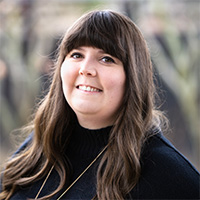
Christina Vandervlist Daigneault
Christina is an environmental educator and interpreter with a passion to connect people to the natural world through engaging, dynamic, experiential programs.
A graduate from Trent University with a bachelor of science in biology and environmental resource sciences, Christina is always eager to get outside and learn something new with those around her. Creative, innovative, and enthusiastic — Christina has a bright outlook on the future and knows the time to make changes for a better world is now.

Jackie Scott
Jackie is a wildlife biologist with the Central Lake Ontario Conservation Authority. She is a graduate from the University of Guelph zoology program and earned a graduate certificate in environmental management and assessment from Niagara College in 2005.
Jackie is also the current chair of the South-Central Ontario Conservation Authorities' Natural Heritage Working Group and is a board member of the Ontario Road Ecology Group. She is also actively involved in international wildlife conservation efforts.
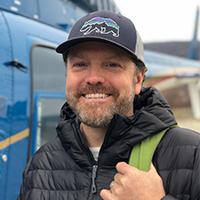
Nicholas Scapillati
Nicholas has over 20 years of experience in environmental non-profit management and is currently the executive director of the Grizzly Bear Foundation. After graduating from McMaster University, Nicholas began his career at the David Suzuki Foundation. He has led programs and organizations at the national, provincial and community levels.
Nicholas served on the Vancity enviroFund grant committee for over a decade, ran as a candidate in the 2013 B.C. provincial election, and has worked closely with First Nations throughout his career. Nicholas is passionate about biodiversity conservation, habitat restoration, food sustainability and climate action.
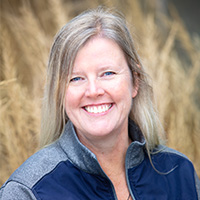
Sara Wilbur-Collins
Sara has 20 years of experience in the conservation sector, recently with the Grand River Conservation Authority and the Nature Conservancy of Canada, and now as the executive director for the Riverwood Conservancy in Mississauga, Ontario.
Sara is a Certified Fund Raising Executive and a strategic leader who values collaboration and has proven her ability to build relationships, reach philanthropic goals, and achieve long-term success. Her focus is on fundraising and governance, engaging donors with important conservation projects locally, regionally and provincially.
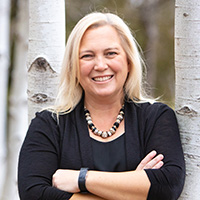
Crystal Allan
Crystal is the supervisor of natural heritage for the Grand River Conservation Authority. Her knowledge and experience have contributed to numerous partnerships leading to projects such as the construction of the Taquanyah Conservation Area wetlands, implementing several large habitat fisheries improvements on the Grand River Tailwater, and many stewardship actions with farmers through the Rural Water Quality Program.
Crystal has worked with the GRCA for the past 20 years with a diversity of stakeholders and Indigenous rightsholders to implement conservation initiatives and protect ecologically significant areas.